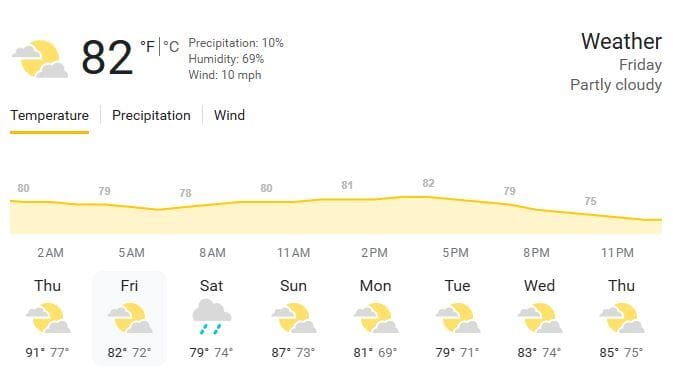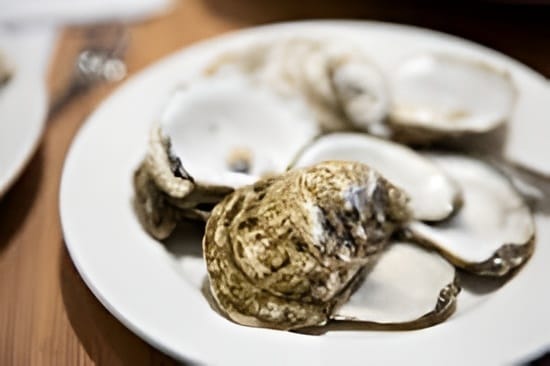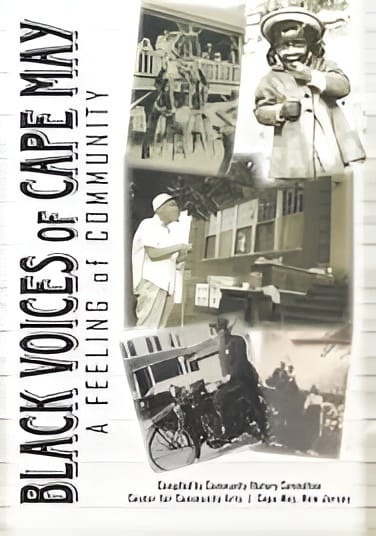- Cape May Local Scoop
- Posts
- From Collapse to Comeback: How Research Revived Cape May’s Oyster Legacy
From Collapse to Comeback: How Research Revived Cape May’s Oyster Legacy
Issue #397


In This Cape May Local Scoop Issue…
📆 Cape May Events
☀️ Cape May Local Weather
🎣 From Collapse to Comeback: How Research Revived Cape May’s Oyster Legacy
👨🏾From Forgotten to Celebrated: Cape May Reclaims Its Black History
🐻Spot a Bear or Bobcat? NJ Wants You to Report It with New Wildlife Tracker
Cape May Local Scoop’s Events Are Sponsored By: Shop Local


👇 Here’s what’s going on in the Cape May Local Area👇
July 18
Cape May Lighthouse - 10:00 am - 5:00 pm
Dolphin Watch Around Cape May - 10:00 am - 12:00 pm
East Lynne’s Youth Theater Camp! - 1:00 pm - 4:00 pm
End of the Road Theater: Classic Film Friday “In Name Only” - 2:00 pm 4:00 pm
Fire Pit Friday & Live Music w Gordon Vincent at Willow Creek Winery - 4:00 pm - 8:00 pm
Rea’s Friday Night Farmer’s Market - 5:00 pm - 8:00 pm
July 19
Guided Nature Walks at Cape May National Wildlife Refuge - 9:00 am - 10:00 am
Cape May Zoo - 10:00 am - 4:30 pm
Historic Cold Spring Village Presents: Early American Trades - 11:00 am - 4:00 pm
Sunset Dolphin Cruise - 6:30 pm - 8:30 pm
Music in the Park at Rotary Park Bandstand - 7:00 pm - 8:30 pm
Cape May Stage Presents: Sexy Laundry - 8:00 pm - 9:30 pm
Ghosts of Cape May Trolley Tour - 9:15 pm - 9:45 pm
July 20
Architectural Walking Tour - 9:30 am - 10:30 am
Historic Cold Spring Village Presents: Early American Trades - 11:00 am - 4:00 pm
Welcome to Cape May Trolley Tour - 11:15 am - 12:30 pm
Live Music at Willow Creek Winery with Don, the Medicine Man - 2:00 pm - 6:00 pm
Music in the Park at Rotary Park Bandstand - 7:00 pm - 8:30 pm
Cape May Stage Presents: Sexy Laundry - 8:00 pm - 9:30 pm
Summer Concert: The Drifters - 8:00 pm - 10:30 pm
July 21
Cape May Zoo - 10:00 am - 4:30 pm
Third Annual Writing Workshops With Poet Laureate Sylvia Baer: Memoirs - 10:00 am - 12:00 pm
Fisherman's Wharf Walking Tour - 10:15 am - 11:00 am
East Lynne’s Youth Theater Camp! - 1:00 pm - 4:00 pm
Gregg Carpenter at the Mad Batter - 6:00 pm - 9:00 pm
Music in the Park at Rotary Park Bandstand - 7:00 pm - 8:30 pm
July 22
Harbor Safari - 10:30 am - 12:00 pm
East Lynne’s Youth Theater Camp! - 1:00 pm - 4:00 pm
West Cape May Farmers’ Market - 3:00 pm - 7:30 pm
Tunesday Tuesdays on the Washington Street Mall - 4:00 pm - 8:00 pm
Andy Reeves at the Mad Batter - 6:00 pm - 9:00 pm
Jazz Night at the Chalfonte Hotel - 7:30 pm - 10:00 pm
Cape May Stage Presents: Sexy Laundry - 8:00 pm - 9:30 pm
OUR NEW EVENT SUBMISSION FORM
Have an Upcoming Event?



From Collapse to Comeback: How Research Revived Cape May’s Oyster Legacy

In the 1800s, oysters were the snack of choice in Cape May, with local streets lined not with hot dog stands but with shellfish vendors. At its peak in the 1950s, South Jersey’s oyster industry was harvesting nearly 200 million oysters annually, earning the region the title “Oyster Capital of the World.” It all nearly collapsed in the mid-1900s due to overfishing and disease. A research breakthrough by Rutgers’ Harold Haskin helped save it, leading to disease-resistant oyster strains and sustainable practices. Oysters do more than just feed people—they clean water, stabilize shorelines, and create habitats for marine life. These ecosystem benefits, combined with a remarkably low carbon footprint, place oyster farming at the intersection of sustainable agriculture and environmental stewardship. Today, the industry thrives through a mix of limited wild harvesting and eco-friendly aquaculture, supported by continued research, regulation, and environmental stewardship.
From Forgotten to Celebrated: Cape May Reclaims Its Black History

The Center for Community Arts (CCA) was founded nearly 30 years ago with a mission to preserve the cultural legacy of Cape May’s African American community. Their work led to a detailed historical archive, oral histories, and broader recognition of Black contributions to the city’s growth. In 2024, Cape May’s Historic District designation was expanded to include African American heritage and civil rights. Although many original Black neighborhoods and buildings have been lost, stories of education, entrepreneurship, community life, and resilience now form a key part of Cape May’s preserved history. Churches served as pillars of support, with Macedonia Baptist Church standing as a spiritual and social hub for generations. Reverend Robert Davis, who led the church for nearly five decades starting in 1961, also became a key advocate for African American rights in Cape May. His leadership, music, and activism are still remembered today. Originally, Cape May’s historic status centered solely on its preserved Victorian buildings. But today's expanded designation reflects a more inclusive view of history—one that honors the stories of entire communities, not just architectural styles. Thanks to the work of the CCA and community partners, Cape May now formally acknowledges and celebrates its long-overlooked African American heritage.
Spot a Bear or Bobcat? NJ Wants You to Report It with New Wildlife Tracker
New Jersey has launched the NJ Wildlife Tracker, a new tool that allows residents to report wildlife sightings from their smartphones or computers. The data helps map habitats, monitor endangered species, and identify road crossing hotspots. Officials emphasize the importance of staying safe and keeping a respectful distance when reporting wildlife, particularly near roads. For certain species found deceased along roadways, including bobcats, river otters, fishers, and black bears, residents are asked not to use the app but instead to contact the DEP Action Line at 877-927-6337. These animals are of special interest, and biologists collect the remains to study populations and health trends. The NJ Wildlife Tracker is part of a broader initiative called the “Summer of CHANJ,” which highlights the state’s efforts to remove barriers to wildlife movement and improve habitat connectivity. Officials hope this tool empowers residents to become citizen scientists and play an active role in preserving New Jersey’s ecological heritage.
Cape May, New Jersey, is recognized as the oldest seaside resort in the United States. In what year did Cape May first begin hosting vacationers from Philadelphia? |
Answer to the July 16th Trivia Question
Which famous composer visited Cape May regularly and even composed a piece named after a historic hotel there?
A) Ludwig van Beethoven
B) John Philip Sousa
C) George Gershwin
D) Aaron Copland
Answer: B) John Philip Sousa
John Philip Sousa, the famous American composer and conductor, regularly visited Cape May and composed the "Congress Hall March," which he conducted on the lawn of Congress Hall in the summer of 1882
How Did We Do In This Issue?Cape May Local Scoop Wants To Know Your Thoughts About Our Newsletter... |